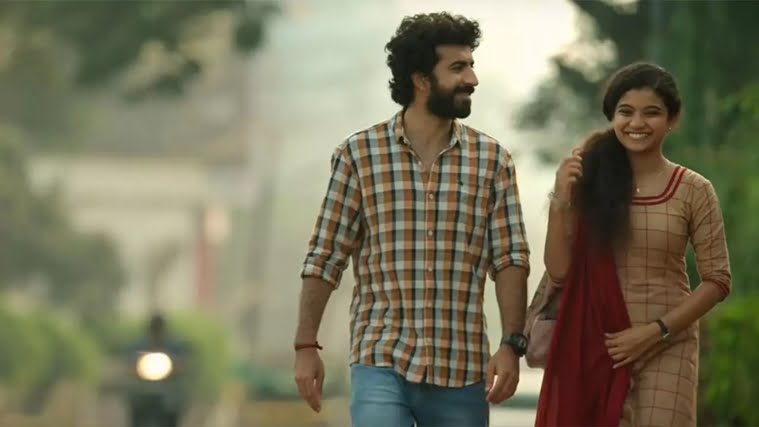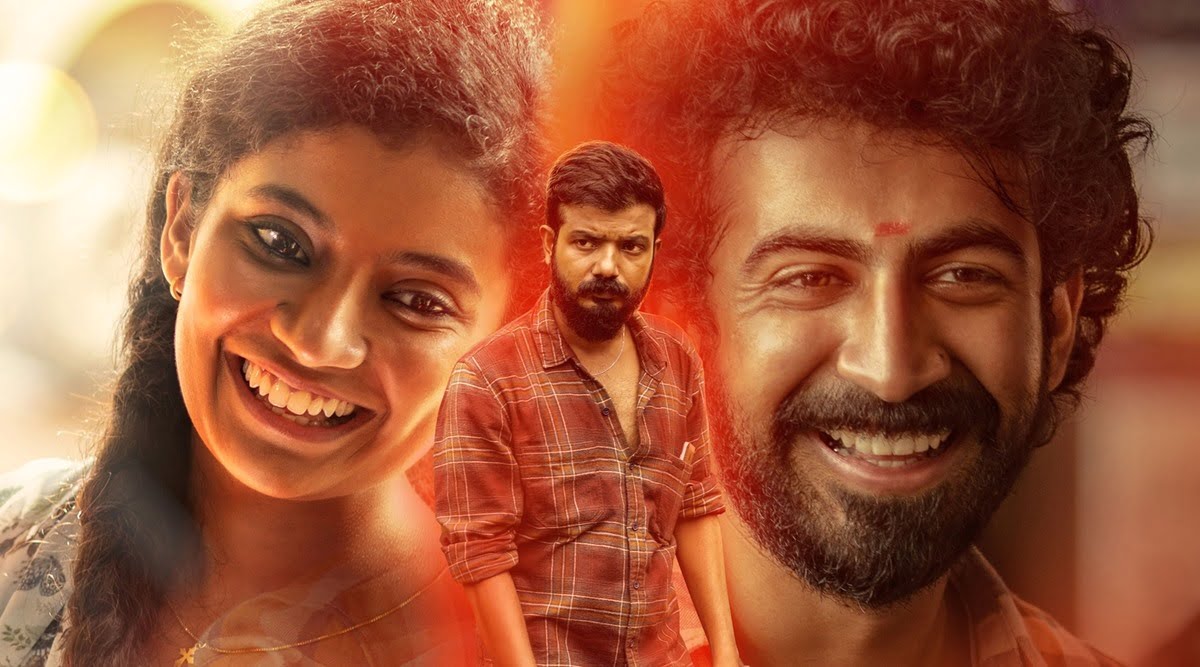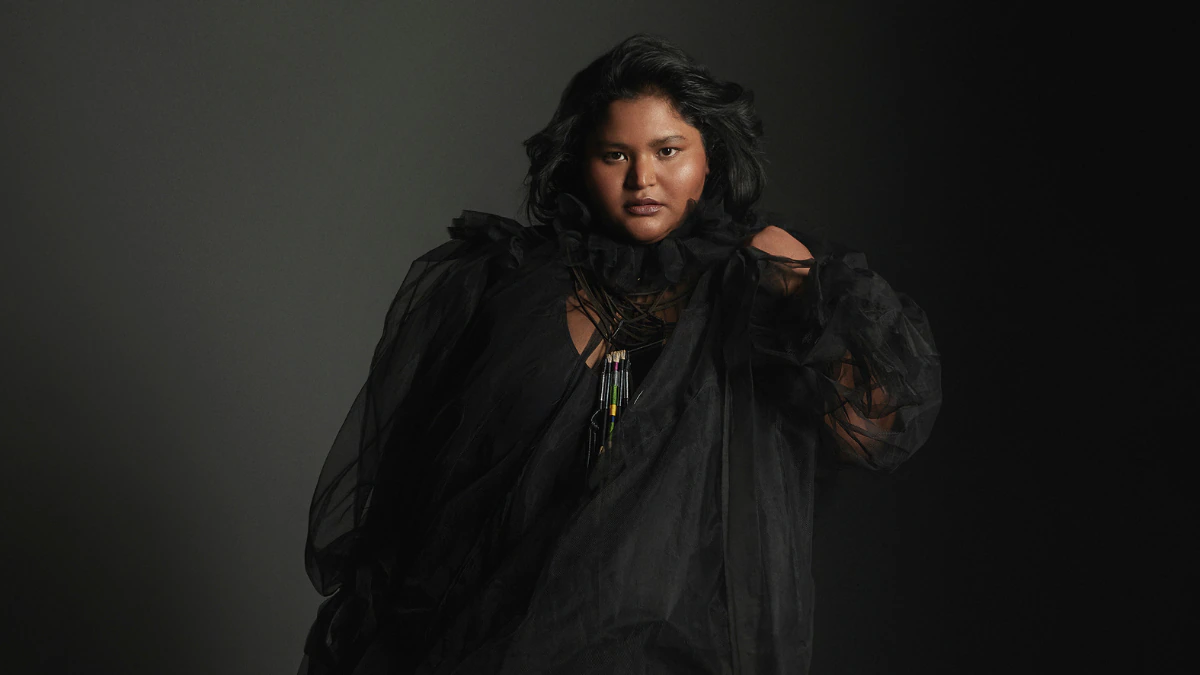Spoilers ahead.
One of the scenes in the 2020 released Malayalam film Kappela (Chapel, in English) is a visibly infuriated father (James Eliya) running after his teenager daughter whom he saw returning from school sitting pillion on a young school boy’s bicycle. She knows what exactly “her mistake” is and so she runs for her life into their house and that is when her father catches her and beats her up for her blasphemy. Not a word is exchanged between the father and the daughter before he thrashes her. This ‘misogynist but good man as protecting the naive girl’ narrative is repeated in several instances throughout the film, among other narratives that make the film anything but feminist. Kappela does not project itself as feminist either.
Released on the OTT platform Netflix, this fast-paced thriller is directed by Muhammad Musthafa (who also acts in the film), the story is fairly simple and the story-telling crisp, given life by the stellar acting of Anna Ben as Jessy, Roshan Matthew as Vishnu and Sreenath Bhasi as Roy.
Kappela’s central character Jessy checks every box of how we would conventionally picture a woman who belongs to the rural India. She is under-educated, largely unambitious, naive and does not own a smartphone
Jessy is the eldest of the two daughters in a modest family living in the fictional village of Poovaranmala in Wayanad. She checks every box of how we would conventionally picture a woman who belongs to the rural India. She is under-educated, largely unambitious, naive and does not own a smartphone – not out of her own choice. Around the time Benny (Sudhi Koppa) the much older owner of a boutique shop begins to fancy Jessy enough to marry her, she finds herself falling in love with Vishnu, a seemingly goody two-shoes auto-rickshaw driver she has only known through her not-so-smart phone after she dialled his number by mistake.
Also read: The Glorification Of The Malayali Male Gaze—5 Years Of Premam
Benny too, wants to save Jessy. “Nammaku Jessy-ye doctor aakiyaalo?” –”Why don’t we make Jessy a doctor?” – Benny is shown asking Jessy’s father, in one instance. Soon after, as Jessy’s parents get busy closing in on the deal that is her wedding (her consent has not been asked yet, even by Benny), she takes a bus to Kozhikode to meet Vishnu for the first time. That is where they meet Roy.

At this point in the film, we are largely suspicious of Roy because he is shown contemplating(?) a deal in sex trafficking so he could get a job. But long story short, in Roy the conventional trope of good guy fights the bad guy and saves the girl and the day is fulfilled and balance is seemingly restored in the universe.
However, the truth is that on a scale of 10, if Vishnu is 15/10 the obvious villain, Roy is not so far behind either. Roy has the carefully built image of a kalippan – the fast becoming popular Malayali categorisation of men who are angry, irreverent and always get the girls. Kabir Singhs, precisely. He is a broody political activist. The scene that sets his identity has him throwing glass bottles at a man who tried to pick a fight with an old shopkeeper. He is angry and fights for the right causes. And the women who are conditioned to find this categorisation of men attractive, their fits of anger and their acts of violence and abuse (towards others and unto themselves) endearing, they have come to be known as kalipante kanthari (the girl of the angry rebel) in popular parlance. A reflection of this pop culture narrative is seen in Roy’s relationship with his partner Annie, played by Tanvi Ram.
Kappela employs male gaze as such in how both Jessy and Annie are introduced in the film. They are both heavily tethered to and impacted by the decisions taken by the men around them.
The film employs male gaze as such in how both Jessy and Annie are introduced in the film. They are both heavily tethered to and impacted by the decisions taken by the men around them. While Jessy is introduced dismissively – as a naive damsel in distress hoping to find love in the guy she is about to meet, running away from a looming arranged marriage, Annie – a teacher, a woman of the city – is introduced as a result of Roy’s want to meet her. Her first scene is when she is asked to get out of the bus because Roy wanted so. This scene also establishes their romantic relationship. Further, when Roy holds her hand in a tight grip, even as other teachers and students watch and giggled in response, it is depicted as another romantic scene. What is unsaid though naturalised here, is the power hierarchy that is established – Roy, who is allowed to hold ‘his girl’s’ hand in a tight, painful grip and neatly slate it under “love” and Annie, who takes it because even though she is well-educated and independent, she is still subordinate to ‘her man’.
Also read: Fishing For The Hidden Feminist Agency In Kumbalangi Nights
This hierarchy in Roy and Annie’s relationship is emphasised over and over and especially in the phone conversations that Annie makes to Roy wherein he dismisses her, “but in love”.
The film rightly emphasises on how honeycombed traps set out by sex traffickers land unsuspecting women in trouble. The National Crime Records Bureau (NCRB) reported that about 22,955 victims of trafficking were recognised in the year 2016. Factors such as poverty, unemployment and female migration are often reported as reasons for the entrenched prevalence of sex trafficking. Yet, Annie’s advice to a visible shaken Jessy is misplaced and founded in the archaic victim-blaming narrative of how informing the police – the system that is expected to enforce our protection and safety, will lead to a public scrutiny and trial of Jessy. In case the question “why do sexual assault survivors not inform the police?” still haunts us, then it is precisely because of this fear that Annie’s misplaced advice instills in Jessy – that we will be shamed for speaking up.
I asked my mother if she liked the film and her response was that she hoped it would have ended with Jessy getting married to Benny. For a lot of us, given how we are conditioned to seeing weddings as happy endings in films, this thought might seem valid. Despite managing a narrow escape from sex trafficking, for a lot of us, Jessy might still not come across as saved enough until she gets married.
Featured Image Source: Indian Express
About the author(s)
Soumya is a Masters graduate in gender from Jamia Millia Islamia & has a PG Diploma in New Media from Asian College Of Journalism. She is learning to unlearn and question patriarchal structures with empathy. She has taken an interest in gardening but has over-watered and killed two plants already. This may or may not be a metaphorical reference to how she deals with life.





You might want to highlight the “Spoilers ahead” caption more prominently as your review gives away everything!
The overwhelming message of the movie, if that’s the word to use, is essentially this – “all that glitters is not gold, especially on social media” but the filmmaker does rely on established mores to drive the plot as you pointed out very well.
Perhaps the cliche of “rough on the surface but with a heart of gold” cliche was overplayed to emphasize the red herring aspect of the plot. Admittedly this was too ham-handed at times (especially the ridiculous notion of pimping to get a job) as well as the snatching/pawning of the girlfriend’s ring. I also saw the father berating the younger sister scene as a pointer to how overbearing and “uncool” parents drive young folks to gravitate to the charmers who speak their language.
You also missed pointing that Jessy retains her independence at the end with a “we will see” to her suitor rather than taking the established path. Yes, it would have been a much better if the movie ended with “no, I want to go on to bigger things”.
Most of the article makes sense except the dissection of Anne and Roys relationship. Looks like the author just wanted to paint it as male domination because she came out of the bus for him or because she let him hold her hand. While what is being portrayed in the movie between Roy and Anne is nothing but love/ friendship/ freedom. Anne understands him to be good hearted, despite what he may seem like to the world.
Enjoyed reading this review 🙂
Though I don’t agree with a lot of things too